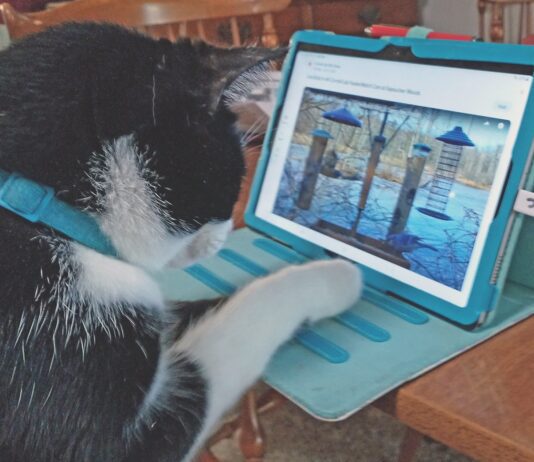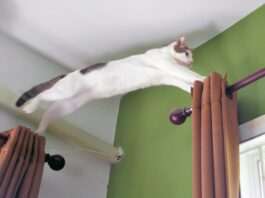One Cat or Two? Or 10?
We all love photos showing a group of happy, lounging cats, each in their own patch of sunshine. We also know homes with two...
Preventing Finicky Felines
Got a picky cat? If you do, you’re not alone. We know of one cat who refuses to eat her food if the kibbles...
Sit, Stay, and Come
Cats are smart, and extremely good at training us. But cats can also be the trainee and can learn pretty much any skill that...
Cats Just Wanna Have Fun
Play is a big part of a cat’s quality of life. In a recent study, researchers looked at four measures in cats: quality of...
Don’t Leave Me Alone!
Cat lovers have long known that cats are attached to us and research has confirmed this (see “The Cat-Human Bond” at catwatchnewsletter.com/behavior/the-cat-human-bond/). But sometimes...
Strange Afternoon Antics
Q: Allie, our female Russian Blue mix, is about 7 years old. She’s a strange one, as she must be close to us but won’t...
Where Did That Floss Go?
Cats are curious by nature and love to investigate objects with different shapes and textures. This includes picking things up, tasting them, tossing them...
The Great Indoors
There are many solid reasons to make your cat an indoor-only companion, and the Cornell Feline Health Center recommends it. Unfortunately, many people feel...
New Cat Friendly Veterinary Guidelines
Two new Cat Friendly Guidelines protocols for veterinary clinics have been released to promote positive, respectful interactions with feline patients and to reduce the...
Inside the Mind of the Cat
The Netflix documentary “Inside the Mind of the Cat” entertains, educates, and positively delights the viewer. It focuses on “what makes cats special,” says...
Who Let the Cat Out?
You hit snooze one too many times on your alarm, so you grab an apple to eat in the car as breakfast, figuring you...
Cat Living on the Roof
Q: My cat was once feral, but she has lived with me for 14 years now. Recently, she did not return after I let...
















